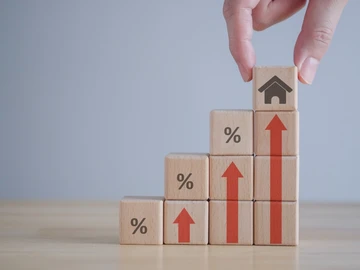The longer you wait to buy or sell real estate, the longer you wait to create the life you always wanted.When it comes to buying or selling a property, making an informed decision is crucial to achieving your goals and maximising your investment. In today's dynamic real estate market, it's more important than ever to have a deep understanding of the local market conditions, trends, and drivers that can impact the value and desirability of a property. Real estate market analysis provides a comprehensive framework for evaluating the market and making data-driven decisions.
By analysing key indicators such as market trends, supply and demand, pricing, and demographics, you can gain valuable insights into the market and make informed decisions about when to buy or sell, how to price your property, and what improvements to make to maximise its value. In this guide, we'll show you how to use real estate market analysis to navigate the complex process of buying or selling a property with confidence and clarity. In this article, we will go into further details…
Step 1 : Research the Local Market
Conducting thorough research on the current real estate market is essential for making informed investment choices and achieving your financial objectives. By gathering data on market trends, sales information, and neighbourhood details, you can gain a comprehensive understanding of the market.
This knowledge will enable you to price your property correctly, attract buyers, and maximise your return. Additionally, staying informed about local market conditions allows you to anticipate changes and adapt your strategies accordingly. Keep track of interest rates, inventory levels, and economic indicators to make well-informed decisions and achieve your goals in the dynamic real estate industry.
Step 2: Consult with a Real Estate Agent
Real estate agents are beneficial when buying or selling homes.Generally,selling a home without an agent (FSBO) can result in a 30% lower sale price.Real estate agents provide expertise, save time, and handle paperwork.Agents have fiduciary duties and negotiate in the client's best interest.Hiring an agent ensures a smoother and more efficient buying/selling process.Discussing your goals and budget with a real estate professional to receive personalised advice and market analysis can be a very good investment.
Step 3: Determine Your Price Range
By analysing data from recent sales and market trends, you can establish a price range that is both realistic and competitive. This will help you avoid overpaying or undervaluing a property.
Selling a home involves various factors, such as finding a good realtor, repairing broken items, and organising paperwork. However, the most critical aspect is pricing the home correctly. Pricing impacts the selling timeframe and the profit made. Research is essential, including getting a professional appraisal and conducting a market analysis to determine the home's value accurately.
Avoid pricing too high based on surrounding homes, as this can lead to difficulties in selling. Emotional attachment to the home can cloud judgement, resulting in overpricing. It is crucial to work with a reliable realtor who can provide honest guidance to ensure the property is priced appropriately for the best outcome.
Step 4: Identify Properties That Meet Your Criteria
Use your market analysis and price range to search for properties that meet your criteria. Work with a real estate agent to schedule viewings and gather additional information about the properties.
When looking to purchase a property, it is crucial to establish a spending limit by considering the down payment, monthly mortgage payment, and additional expenses like maintenance, insurance, and property taxes. It is important to list the essential qualities of your dream home, including location, size, number of bedrooms and bathrooms, type of home, and any special features. Additionally, it is advisable to think about your long-term goals and whether the property will meet your needs in the future, such as starting a family or working from home. By carefully considering these factors, you can make an informed decision when buying a property.
Step 5: Make an Offer
Based on your market analysis, offer a price that aligns with your budget and the property's value. Work with your real estate agent to negotiate and reach a mutually agreeable price. Verify that you have enough money and finances in place. Decide on an offer price. Choose the amount of earnest money to present. Decide which contingencies to add. Compose a buy offer. Move on to closing, negotiate, or just walk away.
Step 6: Conduct a Home Inspection
A house inspector examines many components, including heating and cooling systems, plumbing, electrical work, structural integrity, and other problems that could affect the property's value. It is one method of lowering the danger involved with house buying. To make sure everything is in order and worth the price.
Step 7: Close the Deal
After successfully negotiating the price and resolving any concerns discovered during the inspection, it is essential to finalise the purchase. Collaborate with your real estate agent and lawyer to complete the necessary paperwork and transfer ownership of the property. It is important to note that residential real estate transactions can encounter challenges for various reasons, underscoring the significance of educating oneself, whether as a seller or buyer. Diligence and thoroughness are crucial for all parties involved.
To ensure a smooth selling process and attract potential buyers, it is advisable to conduct a home inspection before listing the property for sale. This will allow you to address any major issues that could potentially deter buyers. Common problems that are often discovered during inspections include mould, pests, electrical issues, foundation or structural problems, basement water penetration, roof damage, and building code violations.
By conducting a pre-listing inspection, you can proactively address these issues and increase the chances of a successful sale.
Step 8: Move In and Enjoy Your New Home/ Go ahead and sell your House
After the closing process is complete, you can finally move into your new home and start enjoying your dream property!
 Continue with Facebook
Continue with Facebook
 Continue with Email
Continue with Email














